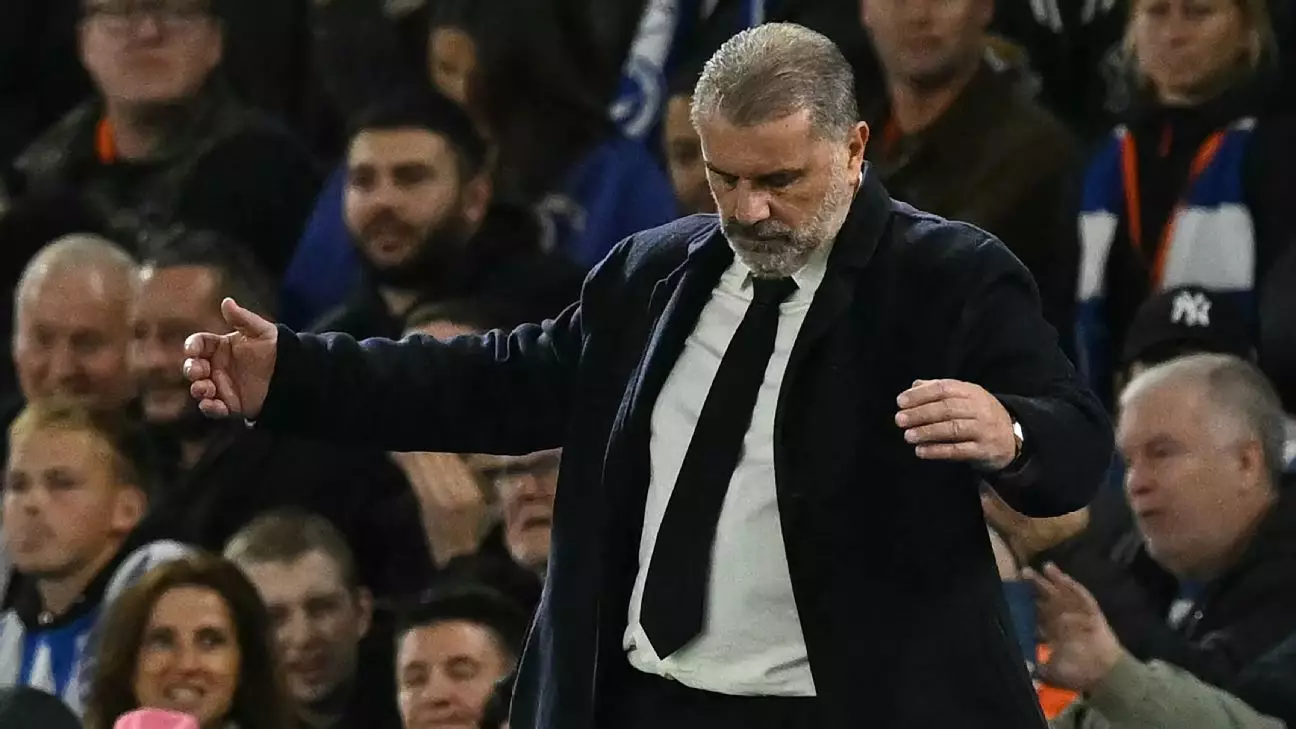After a promising first half, Tottenham Hotspur faced a shocking turnaround in their recent match against Brighton, ending in a disheartening 3-2 defeat. Ange Postecoglou, the manager of Tottenham, characterized this loss as the most painful since his arrival at the club, highlighting the drastic shift in performance that occurred between the two halves. The hope exhibited during the early stages, marked by goals from Brennan Johnson and James Maddison, quickly evaporated as the second half unfolded, leading to critical questions regarding the team’s mentality and preparation.
In the initial 45 minutes, Tottenham seemed in control; they dominated possession and showcased attacking flair. However, the narrative had taken a complete turn by the end of the match. Postecoglou expressed his heartbreak over the team’s inability to sustain their level of performance, emphasizing that the second half was “unacceptable.” He insisted that the apparent complacency shown by his players contributed significantly to their downfall. With the team’s historically combative spirit seemingly absent, Postecoglou was left searching for answers.
The contrast between the two halves could not have been starker. It was not merely an unfortunate sequence of events; it underscored a significant lapse in mental fortitude among players who, until that point, had displayed resilience. The manager’s insights revealed how easily distractions and overconfidence can derail preparation and focus in football, a theme that resonates well beyond the confines of sport.
In terms of league standings, the loss was particularly damaging. What could have propelled Tottenham into a top-four position instead left them languishing in ninth place, with only 10 points from seven matches. This mid-table positioning is far from the expectations set at the beginning of the season. Meanwhile, Brighton’s victory lifted them to sixth place, indicating a contrasting trajectory for both teams. The implications of this defeat stretch further than the immediate statistics; they symbolize a need for reflection and reassessment within the Tottenham camp.
Postecoglou’s assertion that the loss was a “terrible” one compels responsibility to the forefront. He recognized that the path to recovery and improvement lies squarely with him and his coaching staff. As football often serves as a microcosm of life, the lesson learned here is profound: success can quickly become a source of overconfidence, and teams must remain vigilant against the pitfalls of complacency. His philosophy stresses continuous development and the importance of remaining grounded, particularly when facing adversity.
This defeat serves as a clarion call for Tottenham as they approach the international break. If the team is to turn their season around, they must embrace the challenge ahead with renewed commitment and a focus on unity. The resolve to fight for every ball must return, or they risk allowing more opportunities to slip through their fingers. The Spurs faithful will be looking for signs of resilience and a return to form upon their return to action, hopeful that Postecoglou’s leadership can guide them through this tumultuous phase.

